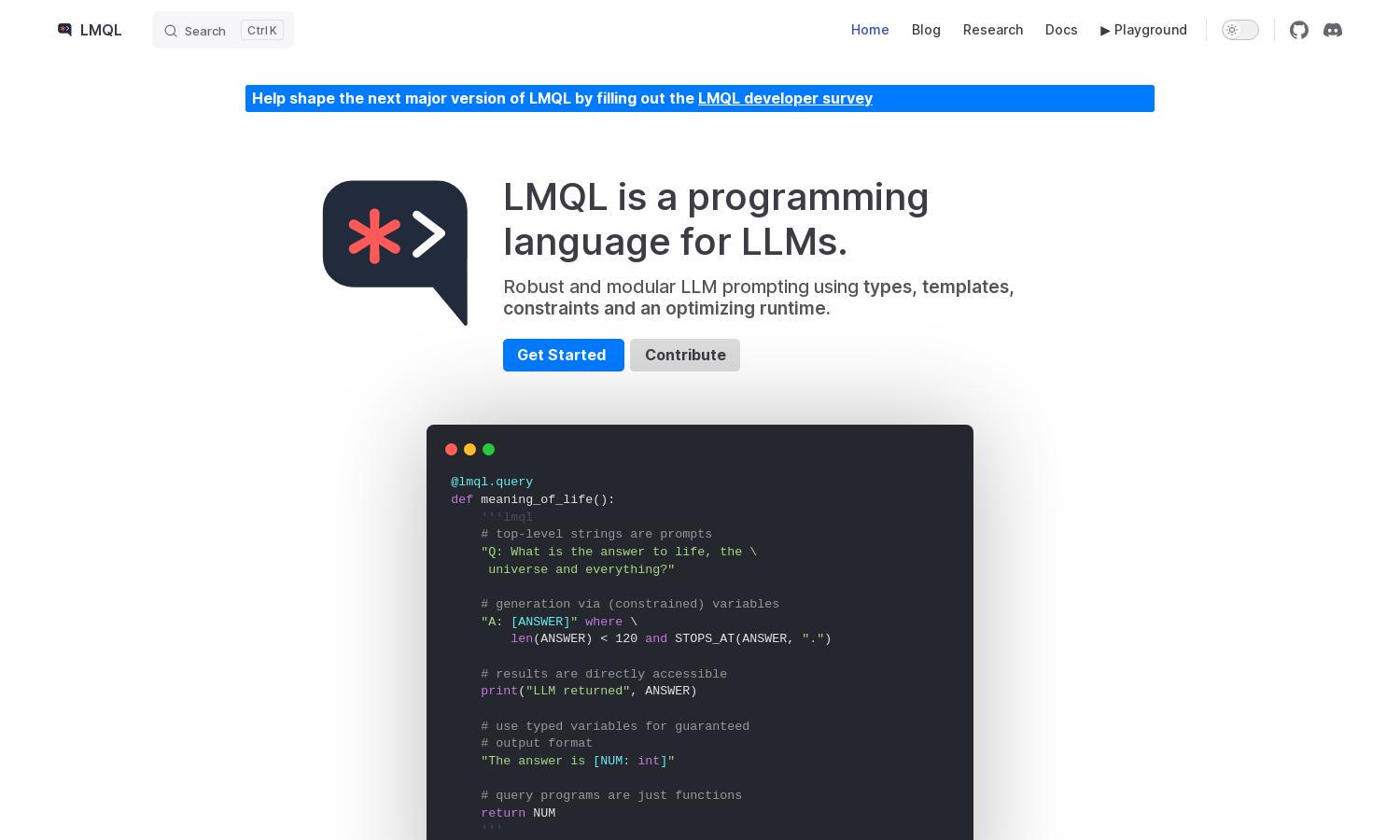LMQL

About LMQL
LMQL is a groundbreaking programming language developed for interacting with language models. Its innovative feature supports modular prompting and types, ensuring efficient and structured communication with LLMs. Targeting developers and data scientists, LMQL streamlines programming workflows and enhances application versatility, making LLMs easier to utilize.
Pricing for LMQL is currently not specified in the provided text. Users can expect tiered subscriptions offering access to advanced features, with potential discounts for early adopters or contributions. Upgrading to a higher tier allows for enhanced functionality, making LMQL more robust and user-friendly.
The user interface of LMQL is designed for ease and accessibility. Its layout facilitates a seamless browsing and coding experience, with intuitive controls and clear navigation. Unique features such as modular query input enhance user interaction, ensuring that both new and experienced users can efficiently engage with LMQL.
How LMQL works
To use LMQL, users begin by accessing the web platform where they can create queries using the programming language's unique syntax. Onboarding allows for immediate familiarity with its features, such as nested queries and constraints for output formatting. Navigating through various modules and templates, users can streamline their interaction with LLMs, optimizing their code for different backends effortlessly.
Key Features for LMQL
Modular Query Support
LMQL's modular query support enhances the programming experience by allowing users to create customizable, reusable prompts. This dynamic feature enables efficient querying of language models, simplifying complex interactions and improving overall development efficiency.
Portability Across Backends
LMQL provides seamless portability across multiple LLM backends, allowing developers to switch platforms effortlessly. This key feature simplifies the integration process, making it easier for users to adapt their queries and applications to various technologies, enhancing flexibility and scalability.
Typed Variables for Output
The use of typed variables in LMQL ensures users receive guaranteed output formats. This feature enhances precision in programming, allowing for structured data retrieval that meets specific requirements, benefiting developers with better control over their interactions with language models.
You may also like:








